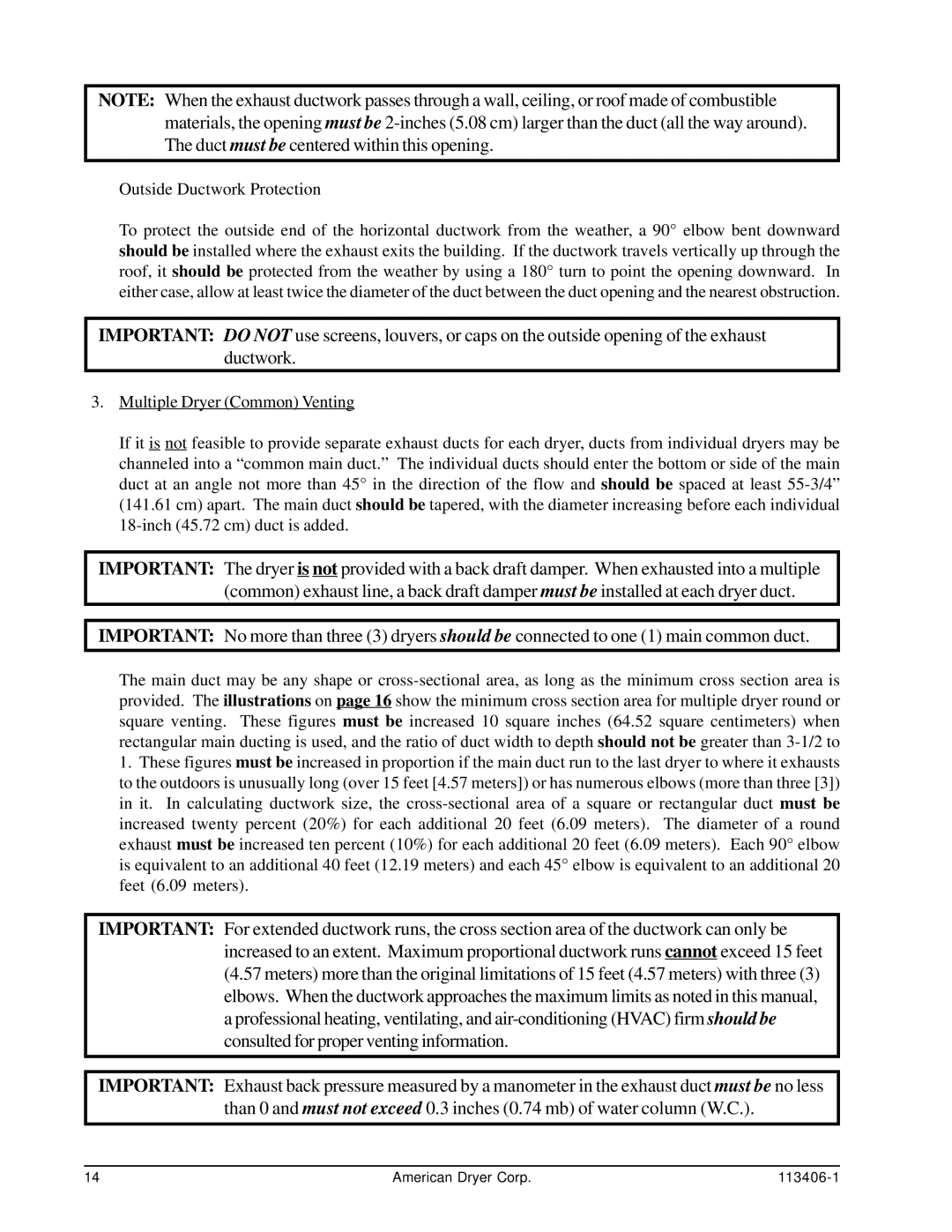ML-175DR specifications
American Dryer Corp ML-175DR is a high-efficiency, state-of-the-art hand dryer designed to provide a superior drying experience in public restrooms and commercial environments. With its sleek and modern design, the ML-175DR not only enhances the aesthetic appeal of any facility but also offers numerous practical benefits.One of the standout features of the ML-175DR is its powerful motor, which generates a strong airflow of up to 17,000 RPM. This ensures that hands are dried quickly and effectively, taking only about 10 to 15 seconds to achieve optimal dryness. This efficiency significantly reduces waiting time for users, making it a convenient choice for high-traffic areas.
The ML-175DR incorporates advanced sensor technology that allows for touchless operation. The built-in infrared sensors detect the presence of hands beneath the nozzle, automatically activating the drying process. This feature not only promotes hygiene by minimizing contact with surfaces but also helps conserve energy, as the dryer only operates when needed.
Another noteworthy characteristic of the ML-175DR is its eco-friendly design. It is constructed with energy-efficient components that use significantly less power compared to traditional hand dryers. This not only reduces electricity costs but also supports sustainability efforts by minimizing the carbon footprint associated with restroom facilities.
Moreover, the ML-175DR includes an adjustable airspeed feature, allowing users to customize their drying experience according to different environments. Whether it’s a busy restaurant or a quiet office, the adjustable settings enable optimal performance tailored to the specific needs of each location.
In terms of durability, the ML-175DR is built with heavy-duty materials that ensure longevity, making it a reliable choice for various commercial and public settings. Its robust construction is resistant to wear and tear, which is essential for hand dryers that see frequent use.
In summary, the American Dryer Corp ML-175DR stands out for its powerful yet efficient drying capabilities, touchless operation, eco-friendly design, adjustable airspeed, and durable construction. These features make it an excellent choice for modern facilities looking to enhance hygiene, improve user experience, and promote sustainability.

